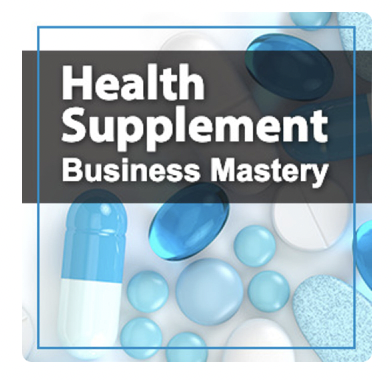We all fall into our own patterns. We’re creatures of habit after all. Dietary supplement brands are no different. They succeed or fail based on the patterns of their thinking rather than the quality of their products.
Often times though we’re too close to our own problems to even see them. The problem comes when those patterns become self-destructive.
From startup to established dietary supplement brands selling vitamins, herbs, and other natural remedies to consumers online, the patterns are the same.
And we’ve uncovered 10 of them that almost everyone we’ve worked with or studied are doing.
Is your dietary supplement business guilty of all 10 destructive patterns or just a couple? Either way it may be time to change your thinking before it’s too late.
1. They lead with the story and support with science
This may work today in the direct response market at least. But, the health market just like any other is in a constant state of evolution.
It’s already in a mature state of marketplace sophistication and speeding up.
As the next generation of Millennials become more health conscious of health concerns and more advertising platforms like Facebook continue to make it difficult for dietary supplement brands to advertise.
I’m seeing the marketing shifting from leading with story to starting with science.
2. They have surprisingly little insight into their consumer segments
Across the board no dietary supplement brand truly knows their customer. They know their need state, but not their needs.
What I mean by that is on a clinical level they know what combination of ingredients will help with a specific condition.
But they don’t understand the customers desires, hopes and beliefs.
These are what make up the buying forces framework that influence how people buy health products differently online.
3. They have trouble fully expressing and embodying their mission / purpose in the world
This is ironic since the reason why entrepreneurs start a dietary supplement brand online is because of a bigger mission in the first place.
Weather it’s to right a personal wrong, to cure themselves or a loved one or just simply because they want to help, there’s a story behind every dietary supplement brand.
Digitally native brands that sell exclusively online have the upper hand here. They don’t have the big budgets for retail sales and therefore are forced to take the scrappy route of spreading the word online through Instagram, Facebook.
When done right, these platforms force you to be more human through video and story.
4. They believe that copywriting is how you win the game
There’s no doubt the approach digitally native dietary supplements brands take is copy heavy.
The destructive pattern is that as long as the copy is good that’s all that you need.
But this is far from the truth. There are at least two other levers that have a bigger effect than copy. Namely, the offer and marketplace positioning.
A weak offer with strong copy won’t convert as well as a strong offer alone. Yet such little time is spent on crafting high converting maximum profit offers.
The second lever, marketplace positioning, is one that most everyone ignores. A marketing message that is not inline with the marketplace is doomed from the start.
5. They think ingredients differentiate them rather than their marketing
Marketing is capable of a lot more heavy lifting than dietary supplement companies realize. The majority (Non Direct Response Companies) rely on just their ingredients and branding to set them apart from the competition.
While ingredients are important to the customer, that’s not all that drives their decision. Marketing is the educational part of the equation.
It bridges the gap between emotional influence and selling. It’s separate from selling. And it influences the purchase and builds trust beyond the brand and look of your bottle.
6. They are competing against other supplements, rather than health conditions
Alternative products are often overlooked as competition by many dietary supplement marketers.
They are typically too busy looking for ideas on how to market supplements, which forces them to look only at their competition.
Customers are not thinking in such narrow terms. If you have a health problem you’re main goal is to solve that problem.
You’re coming from the posture of a need rather than a choice of which bottle to buy. The solution that solves your particular need may not even be a supplement as in the case of gut health.
Prospects may be looking towards a drink like Kombucha or a yogurt like Activia.
7. They assume other people are doing something that’s working without thinking
Being a data driven guy, this is one of my biggest pet peeves. Marketers see something someone else is doing and implement it without ever questioning or thinking about the underlying context.
They assume it’s working. Or they hear of the latest marketing tactic that’s “working” for someone at a high level mastermind and want to implement it without thinking through the strategy for them.
Often times these so called short cuts are not really working.
Other marketers usually have faulty attribution metrics and think they are working when they are not.
Or they never really bothered to measure them in the first place and are attributing an increase in their KPIs due to random noise.
8. They put marketing first at the expense of everything else
Direct response supplement companies know the importance of marketing when positioning their product against the competition.
But because they grew out of marketing, they tend to put all of their eggs in the basket of marketing at the determent of everything else.
The biggest being the customer journey and customer experience. This makes them great at getting a first time buyer but they struggle to grow that customer over time.
Often just putting them on an un optimized email follow up sequence at best. Once they have a customer they stop investing money in them.
9. They struggle to be transparent and may even fear it
There are a couple of barriers that are a struggle here. First is the struggle with how to be transparent. This is a struggle is with tools. How to communicate to the market.
Second, is the struggle with what do we say to be transparent? This is a struggle with messaging.
Most dietary supplement companies have short sighted ideas of what transparency is. Starting and stopping at the ingredients level.
Being transparent to them is just about showing how much of an ingredient is in a capsule. Those that go further don’t take if far enough.
They extend transparency to include where the ingredients were sourced or their potency. Very few take it beyond ingredients at all.
Transparency is more than just what’s in the bottle. It also includes what you stand for, and why you do what you do.
Finally, there is struggle with the idea of transparency at all. Transparency implies openness, communication, and accountability. This is as much admitting when you have made a mistake as much being able to explain, clarify and justify actions.
Many companies are not ready or willing to be transparent and act in a more reactionary way, only being transparent when the situation forces them to be.
10. They jump on the band wagon of competitors rather than frame the conversation
The grass always seems greener on the other side, until you’re actually on the other side. This is just human nature. We won’t ever be able to eliminate that but in business we can resist it.
Most of the time however, we don’t. Instead what I constantly see happening is a jump on the band wagon effect on marketing. We hear through the grape vine that one supplement company is crushing it, and we swipe and deploy what they are doing.
Often without questioning. This leads to a reactionary mindset. One in which we’re always looking for the next thing, thinking someone else is doing it better than we are or even are capable of doing at all.
Far few digital native dietary supplement companies take a stand and lead the conversation
Discover the 3 funnels that can help your health supplement business succeed.

Listen to the Health Supplement Business Mastery Podcast for for dietary supplement entrepreneurs and marketers.



